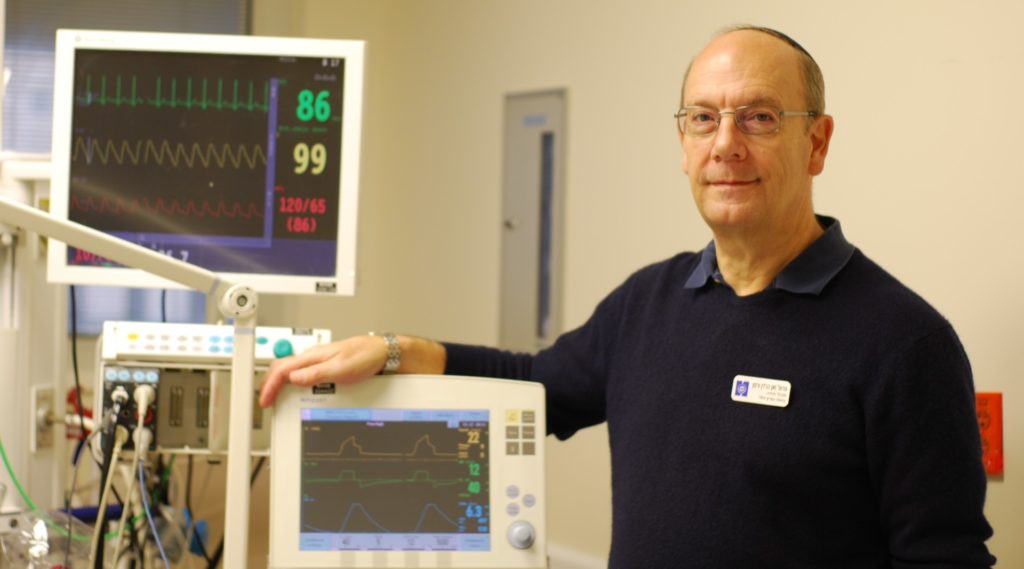Professor Vernon Van Heerden, General Intensive Care Unit Director of the Department of Anaesthesiology, Critical Care and Pain Medicine at Hadassah Hospital in Jerusalem and visiting professor at the European University of Cyprus, shares his experience of helping people recover from the new coronavirus ‘Covid-19’ these last two months.
- Can a patient that is sent to the ICU, recover?
Yes, definitely! Only a small proportion of patients infected with the virus end up in the ICU, but most of them recover. The death rate appears frightening because of the very large number of patients who are currently infected with the virus – but only about 1-3% of patients will die from it. In comparison, the annual death rate from the regular influenza stands at about 250,000 – 600,000 worldwide.
- Are patients who have been intubated left with a permanent hole in their throat, even after being discharged?
Only patients who are ventilated for a long time (more than 10-14 days) get a tracheostomy and even then, it is still temporary; it is removed when the patient fully recovers.
- Is it more likely to contract other infections while being in the ICU?
The rate of secondary bacterial infection in patients with this virus is actually quite low.
- What are your predictions for this pandemic?
I think what happened in China is a good example of the course of this pandemic – it lasts for several months, with a peak of cases after three or four months and then fades away. We won’t be able to return to our normal routines for longer than that though, because if we let our guard now, we risk a potential second or third wave of the pandemic. We need to develop more effective treatments and a vaccine within 12 months so as to be better prepared and in turn safer. What we are trying to achieve at the moment, with measures such as quarantine, social distancing and etc, is to reduce the height of the peak of cases and try and spread it out over a longer period – to avoid overwhelming the hospitals, like they are in Italy and Spain.
- How can we better protect ourselves?
By staying home, avoid meeting large groups, keeping a two-metre distance from everyone, wearing a mask in public, washing hands with soap and water or hand sanitiser. Older people in particular must stay isolated at home.
- Are there cases of children being seriously affected by this virus in Israel?
Children mostly seem to be only developing mild symptoms of the disease, if they get sick at all. There are very few cases of children getting sick, or needing hospitalisation or intensive care. The danger lies in the fact that children can be completely well physically, but still be carrying the virus and subsequently infecting the people around them. Therefore, it is important that grandparents and grandchildren refrain from meeting during this period.
- Do you think that express tests are adequate?
They are good screening tests, but should not be taken as gospel because there have been occasions where they have produced false results in some cases. For instance, if one is unwell and the test comes back “negative for corona”, then it is still wise to self-isolate.
Professor Van Heerden has been the Director of Hadassah Medical Centre ICU Units, since 2012. Before that, he had served as an Intensivist at Sir Charles Gairdner Hospital, in Perth, Australia for 10 years, while also lecturing as a Clinical Professor at the University of Western Australia.
He is also a visiting Professor at the European University of Cyprus.
Professor Van Heerden has published more than 120 articles and has a vast research experience. Professor Van Heerden is authorised by the Cyprus Ministry of Health to offer his services to international patients on the island.






